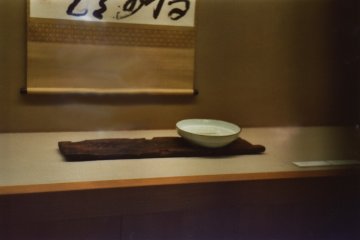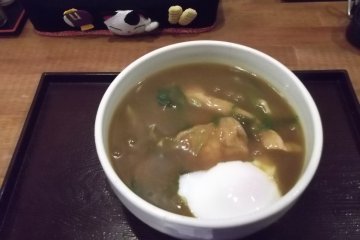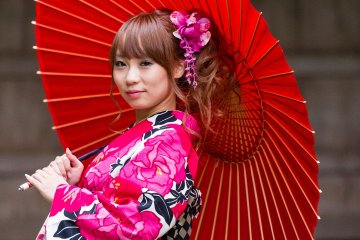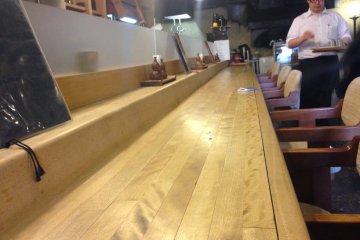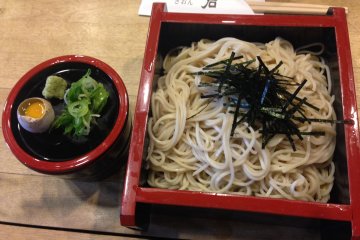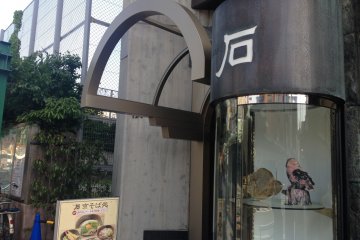Kyoto is like an onion. Over a number of visits, it slowly reveals itself, layer by layer. Of course, if you have an introduction, you can get access to places that most tourists have not even heard of. Some of these places may be right under your nose, otherwise you could pass its non-descript facade a dozen times and not even know it exists.
The Ishi Restaurant in Gion is one of those places. Tucked away above busy Shijo Street, the main shopping thoroughfare leading to Yasaka Shrine, there are no English signs to speak of, except a lone kanji script with the Japanese word for rock, or ishi. This is probably the last image you would associate with food, ensuring very few touring connoisseurs venture here. On the ground floor is a gemstone store, one that claims an association with Kyoto’s long history of jewellery, being at the end of the defunct silk route until it was reopened by the Portuguese through the Nanban trade route in the Sixteenth century. If you can extract yourself from the gemstones, you will be whisked away on a tiny elevator to the third floor restaurant, and despite its height, resembles a James Bond dungeon hideaway complete with slick Italian style armchairs, like the ones on a 1960's cruiser off the coast of Venice.
The signature dishes here all feature a key ingredient: duck. This bird is not usually what comes into mind when you think of Kyoto cuisine, but a few minutes down Shijo Street is the Kamogawa, which loses its mystique when it is literally translated as Duck River. Duck Nanban may be called the soul food of Kansai, a slowly simmered dish with leeks and softly scrambled eggs topped with Japanese spices, all features associated with Nanban cuisine that only has a faint connection with Portuguese influences.
These days Japan is less known for its Jesuit connection than for its latest in technology. The ultimate in convenience can be seen in their picture menus and plastic displays, and in many restaurants, the menu even comes on a touch screen where you can select and dispatch your order without any need to communicate with a waiter. But modernity has its limitations. What if you want to buy a drink for the gorgeous vixen on the other side of the room? These touch screens only allow you to order for your table, with no chance of malfunctioning so you can order for someone else. At Ishi they firmly believe in the charm of the 1960’s. So you catch the eye of someone special, it is easy to buy them a drink, or even slide your hand written love note across the counter. It would help though if you arrive in the evening, as chances are there will be no one else here at 3 in the afternoon. At least they were kind enough to save this accidental spy from starving at this unsocial hour.



